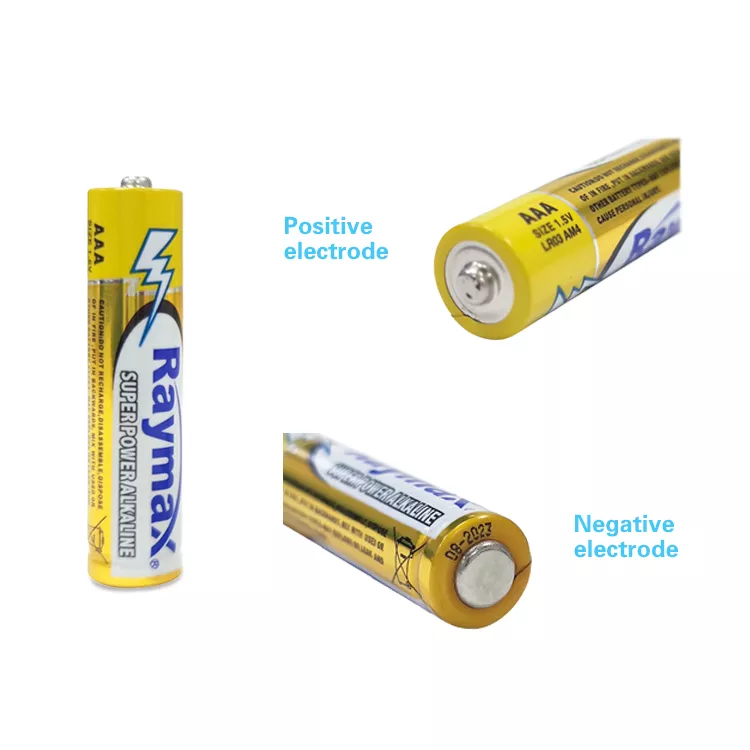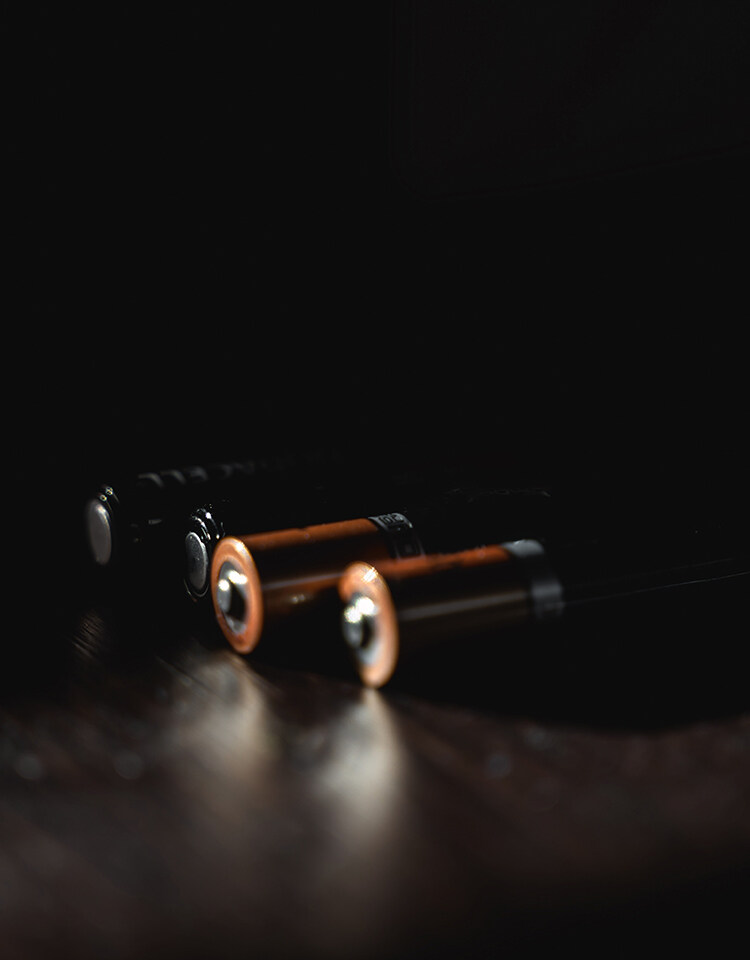Email format error
Email cannot be empty
Email already exists
6-20 characters(letters plus numbers only)
The password is inconsistent
Email format error
Email cannot be empty
Email does not exist
6-20 characters(letters plus numbers only)
The password is inconsistent

Alkaline battery & Button cell manufacturing process-News

Embracing the Future: The Rise of 1.5 Volt AA Lithium-Ion Rechargeable Batteries
In an era where sustainability, efficiency, and convenience are paramount, innovations in battery technology are driving significant change across industries. These innovations are shaping many sectors. Among them, the development and adoption of 1.5 volt AA lithium-ion rechargeable batteries stand out. They are seen as a transformative solution. These batteries offer numerous advantages. These advantages include extended shelf life, high energy density, and improved environmental impact. This blog explores the key reasons behind the rise of 1.5 volt AA lithium-ion rechargeable batteries. It also examines their impact on various sectors.
The Evolution of Battery Technology
Battery technology has evolved considerably over the past few decades. In the past, early automobiles used heavy, inefficient lead-acid batteries. Today, lightweight, compact lithium-ion batteries power modern smartphones, tablets, and electric vehicles. Battery innovation has been critical to our increasingly digital and electrified world. Traditionally, AA batteries were the go-to power source for many devices. These devices included remote controls, toys, flashlights, and more. These batteries were mostly disposable alkaline batteries. These batteries posed significant environmental challenges. Their short lifespan and non-biodegradable components were major concerns.
The introduction of rechargeable batteries marked a significant shift. It was the first step towards sustainability. Nickel-Cadmium (NiCd) and Nickel-Metal Hydride (NiMH) rechargeable batteries offered a way to reuse energy. However, these batteries had their own limitations. These included lower energy density, memory effect, and environmental toxicity. This is where 1.5 volt AA lithium-ion rechargeable batteries come into play. They offer a sustainable, efficient alternative. These batteries address many of the issues associated with older battery types.
Why Choose 1.5 Volt AA Lithium-Ion Rechargeable Batteries?
1. High Energy Density and Longer Battery Life
One of the most significant advantages of 1.5 volt AA lithium-ion rechargeable batteries is their high energy density. Lithium-ion technology allows for a much higher charge capacity than traditional rechargeable batteries, like NiMH. This means that devices powered by these batteries can run longer between charges. Whether it's a high-drain device, like a digital camera, a wireless mouse, or a remote control, lithium-ion batteries provide a longer-lasting power source.
For example, with a 1.5 volt AA lithium-ion rechargeable battery, users can expect devices like flashlights or portable speakers to operate continuously for hours. This is a significant improvement over traditional alkaline batteries. This extended battery life translates to greater convenience. It also leads to less frequent charging. This is beneficial for both consumers and the environment.
2. Stable Voltage Output
Another critical benefit of 1.5 volt AA lithium-ion rechargeable batteries is their stable voltage output. This stability lasts throughout their discharge cycle. Unlike NiMH batteries, which tend to drop their voltage rapidly, lithium-ion batteries maintain a consistent voltage. They do so until they are nearly fully discharged. This makes them ideal for sensitive electronic devices. These devices include medical equipment, remote controls, and even portable gaming consoles. In these devices, consistent power delivery is crucial.
3. Fast Charging and Low Self-Discharge
Lithium-ion batteries are known for their fast charging capabilities and low self-discharge rate. A 1.5 volt AA lithium-ion rechargeable battery can be charged much more quickly than traditional NiMH batteries. In fact, they often reach a full charge in just a few hours. Additionally, lithium-ion batteries have a low self-discharge rate. This means they retain their charge much longer when not in use. This makes them perfect for gadgets and devices that are not used daily. Examples of such devices include smoke detectors, emergency flashlights, and portable electronics kept in storage for long periods.
4. Reduced Environmental Impact
The environmental impact of battery production and disposal is a growing concern worldwide. Traditional alkaline batteries contain harmful chemicals. These chemicals include mercury, cadmium, and lead. These materials can pollute soil and water if disposed of improperly. 1.5 volt AA lithium-ion rechargeable batteries, on the other hand, do not contain these hazardous materials. These batteries have a much longer lifespan. They can also be recharged hundreds of times. This significantly reduces the overall number of batteries needed. This, in turn, lowers the amount of e-waste in landfills. Additionally, many lithium-ion batteries are designed to be more energy-efficient and environmentally friendly. This holds true throughout their entire lifecycle, from production to disposal.
For example, in the electronics industry, companies like Apple and Samsung have been integrating lithium-ion batteries into their devices. They do this as part of their effort to meet environmental goals. By using 1.5 volt AA lithium-ion rechargeable batteries, consumers can contribute to this global push toward sustainability.

5. Cost-Effectiveness in the Long Run
While the upfront cost of 1.5 volt AA lithium-ion rechargeable batteries can be higher than disposable options, their long-term cost-effectiveness is indisputable. A single lithium-ion battery can be recharged over 500 times. This equates to savings in money and resources over the years. This makes them an attractive option for households, businesses, and institutions. They are particularly appealing to those seeking to reduce operational costs and environmental footprints.
Practical Applications of 1.5 Volt AA Lithium-Ion Rechargeable Batteries
Household Devices
From remote controls to wireless keyboards and mice, 1.5 volt AA lithium-ion rechargeable batteries offer extended battery life. They also reduce environmental impact. Consumers can enjoy the convenience of long-lasting power. They no longer need to constantly replace disposable batteries.
Portable Electronics
In the age of portable electronics, like tablets, e-readers, and compact digital cameras, 1.5 volt AA lithium-ion rechargeable batteries provide a reliable power source. These batteries can handle the energy demands of such devices. They allow users to explore features like higher screen brightness and faster data processing. This is possible without frequent recharging.
Emergency Lighting and Power Outages
Lithium-ion batteries are ideal for powering emergency lights and portable power sources. Since they have a stable voltage output, they can retain their charge for extended periods. This makes them reliable during power outages and natural disasters.
Toys and Children's Devices
As children’s toys evolve into more complex and interactive electronics, the 1.5 volt AA lithium-ion rechargeable battery proves to be an excellent power source. These toys require consistent power. This includes powering LED lights, sensors, and motors. Lithium-ion batteries can reliably provide this power.
Challenges and Considerations
While 1.5 volt AA lithium-ion rechargeable batteries offer numerous advantages, there are challenges that manufacturers and consumers need to consider:
- High Initial Cost: The upfront cost of lithium-ion batteries is higher than disposable alternatives, like alkaline batteries.
- Compatibility Issues: Some older devices may not be optimized to work with lithium-ion batteries. This can lead to issues with charging and performance.
- Limited Availability: As this technology is relatively new, 1.5 volt AA lithium-ion rechargeable batteries are not as widely available in stores as disposable batteries.
However, as manufacturers scale production and improve compatibility, these challenges are becoming less significant.
Conclusion
The 1.5 volt AA lithium-ion rechargeable battery is a key player in the transition to more sustainable, energy-efficient power solutions. As technology continues to advance, this battery type is becoming increasingly popular. This popularity is due to its extended lifespan, high energy density, consistent power output, and reduced environmental footprint. Whether it's powering household devices, portable electronics, or emergency lights, 1.5 volt AA lithium-ion rechargeable batteries offer numerous benefits. These benefits make them the ideal choice for consumers looking to adopt greener technology.
With global efforts towards reducing carbon footprints and enhancing energy efficiency, it’s clear that 1.5 volt AA lithium-ion rechargeable batteries will play an essential role in meeting our sustainability goals. By choosing these batteries, individuals and industries can contribute positively toward environmental conservation, energy efficiency, and overall operational cost savings. The rise of 1.5 volt AA lithium-ion rechargeable batteries marks a significant milestone. It is part of the journey toward a more sustainable, energy-efficient future.

